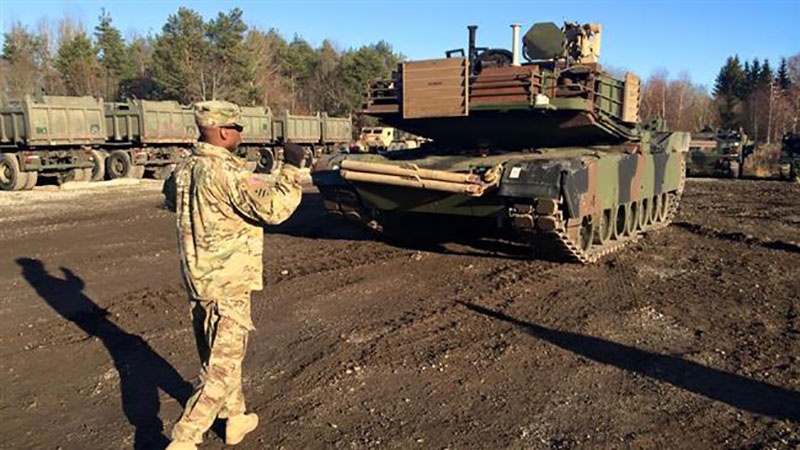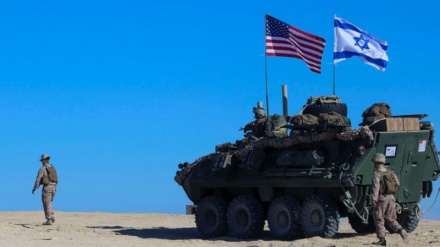Russia: US war games in Estonia ‘provocative, extremely dangerous’
Russia says live-fire exercises by the United States in Estonia, near Russia’s western borders, are “provocative” and “extremely dangerous” as they would escalate tensions in Europe.
The Russian Embassy in Washington raised the alarm about the war games in a statement on Tuesday.
The war games, involving an infantry brigade of the Baltic Armed Forces and the 41st Field Artillery Brigade of the US Army, started in Estonia on September 1 and will run until September 10.
The drills are the first live-fire exercises by US artillery units outside of their permanent bases in Europe.
The embassy’s statement censured the planned use of multiple launch rocket systems “in the immediate vicinity of Russian borders,” and said, “The Russian Federation has repeatedly proposed to the United States and its allies to limit training activities and to divert the exercise zones from the Russia-NATO contact line.”
“We consider the actions of the US Armed Forces in Estonia provocative and extremely dangerous for regional stability,” the Russian mission said.
“Why is this demonstrative saber-rattling? What signal do the NATO members want to send us? Who is actually escalating tensions in Europe? And this is all happening in the context of an aggravated political situation in that region of the European continent. A rhetorical question is — how would the Americans react in the event of such shooting by our military at the US border?” the statement said.
Russia has long been wary of NATO activity near its borders, slamming military drills and missile deployments in Eastern Europe and near its western borders as provocative.
Russia denies violating Denmark’s airspace
In another development on Tuesday, the Russian Defense Ministry rejected a NATO accusation that a Russian jet had intruded into Danish airspace.
The US-led military alliance claimed on August 28 that a Russian Sukhoi had followed an American Air Force B-52 into Danish airspace and committed a significant violation of the airspace of a NATO member.
The Russian Defense Ministry said no such violation had taken place and the flight had been carried out in strict accordance with international airspace regulations.
The ministry said the Su-27, which was scrambled to identify the US Air Force strategic bomber, flew over the neutral waters of the Baltic Sea.
SS



